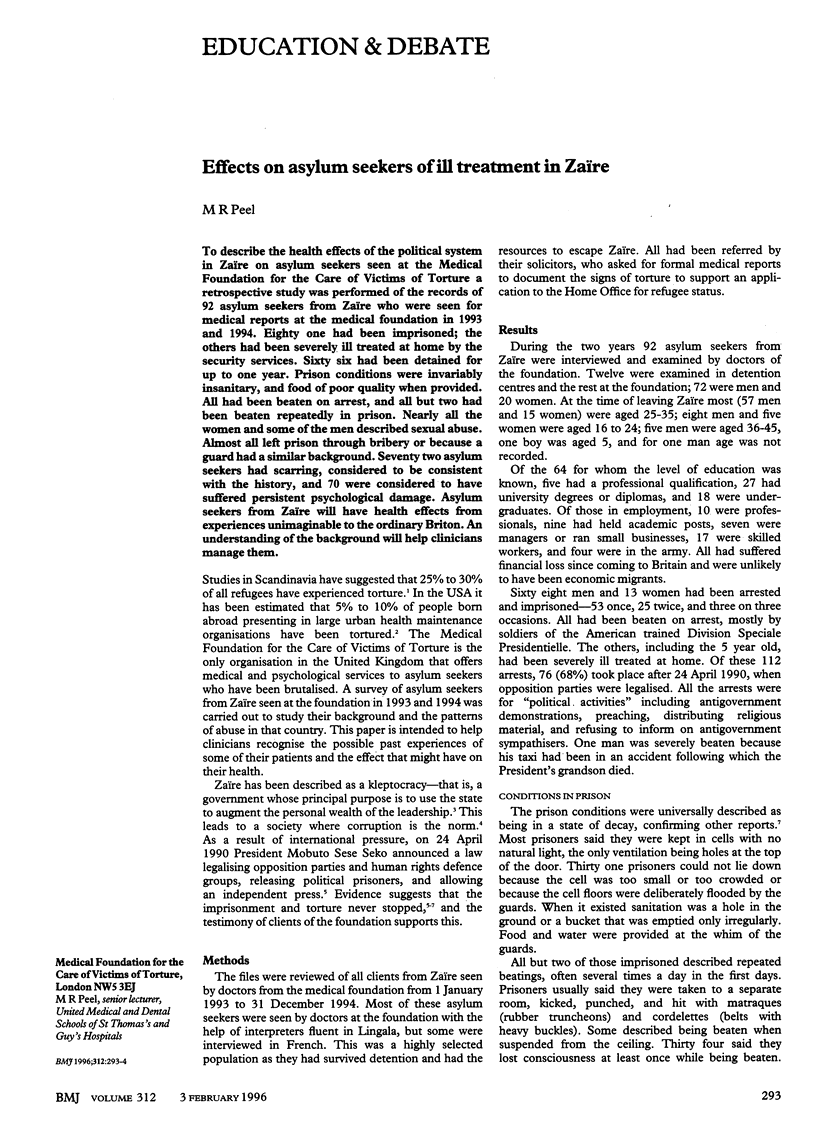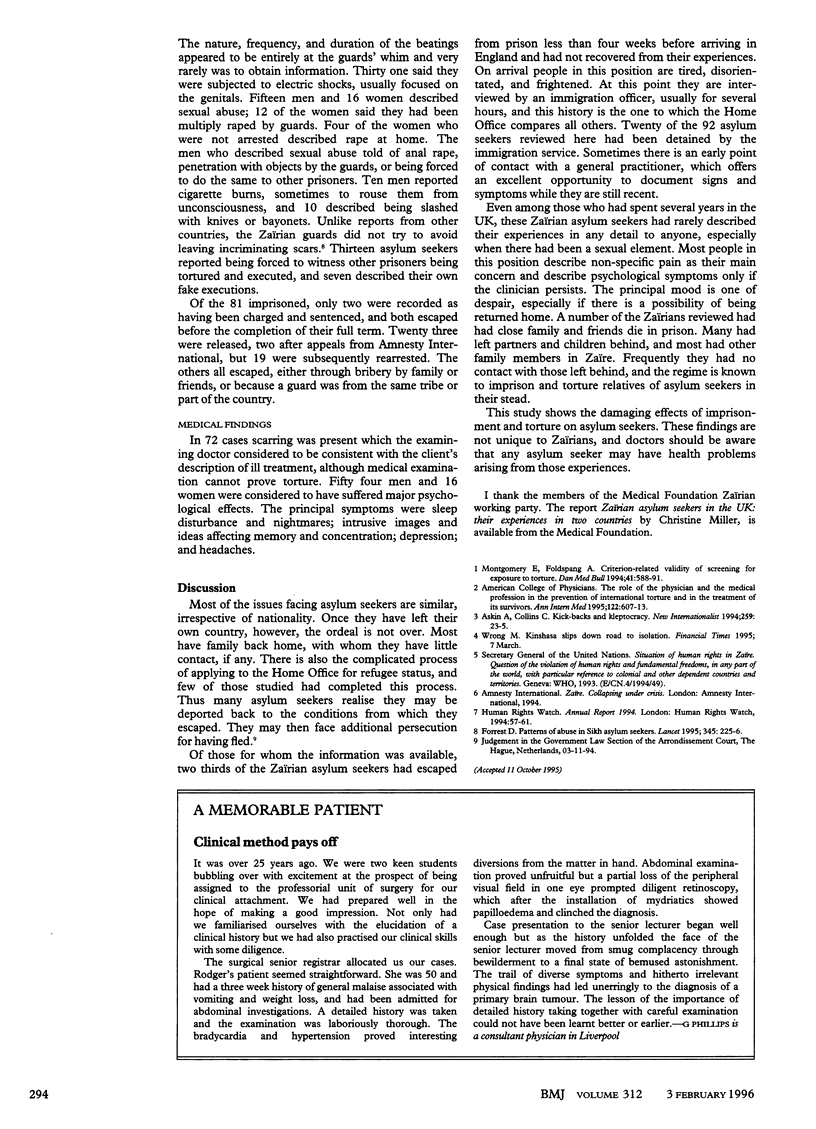Abstract
To describe the health effects of the political system in Zaïre on asylum seekers seen at the Medical Foundation for the Care of Victims of Torture a retrospective study was performed of the records of 92 asylum seekers from Zaïre who were seen for medical reports at the medical foundation in 1993 and 1994. Eighty one had been imprisoned; the others had been severely treated at home by the security services. Sixty six had been detained for up to one year. Prison conditions were invariably unsanitary, and food of poor quality when provided. All had been beaten on arrest, and all but two had been beaten repeatedly in prison. Nearly all the women and some of the men described sexual abuse. Almost all left prison through bribery or because a guard had a similar background. Seventy two asylum seekers had scarring, consider to be consistent with the history, and 70 were considered to have suffered persistent psychological damage. Asylum seekers from Zaïre will have health effects from experiences unimaginable to the ordinary Briton. An understanding of the background will help clinicians manage them.
Full text
PDF

Selected References
These references are in PubMed. This may not be the complete list of references from this article.
- Forrest D. Patterns of abuse in Sikh asylum-seekers. Lancet. 1995 Jan 28;345(8944):225–226. doi: 10.1016/s0140-6736(95)90225-2. [DOI] [PubMed] [Google Scholar]
- Montgomery E., Foldspang A. Criterion-related validity of screening for exposure to torture. Dan Med Bull. 1994 Nov;41(5):588–591. [PubMed] [Google Scholar]


